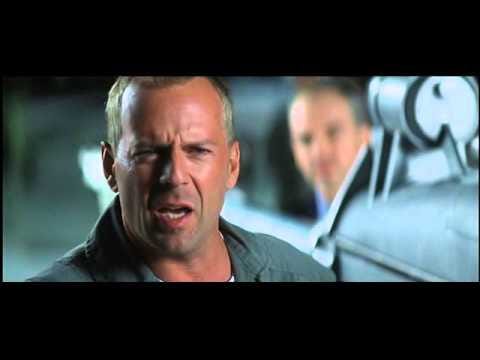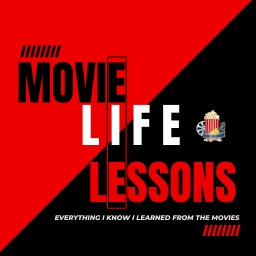Movie Life Lessons: Armageddon & The Rock - When Flaws Become Superpowers
Heroism for the Hopelessly Human
💥 "Permission to shake the hand of the daughter of the bravest man I've ever met in my life."
These words from Colonel Willie Sharp (William Fichtner) to Grace Stamper (Liv Tyler) in Armageddon never fail to bring tears to my eyes. Not just because they're emotional, but because they properly recognize the true heroism of Harry Stamper's sacrifice—a man who was far from perfect, yet ultimately saved the world.
📽️ The Story: When "Unqualified" Becomes Exactly What's Needed
There's an entertaining story from the Armageddon DVD commentary where Ben Affleck recalls questioning Michael Bay about the film's central premise:
"Wouldn't it be easier to train astronauts to drill rather than training drillers to become astronauts?"
Bay's response? He tells Affleck, “shut up, Ben. This is a real plan.”
It’s pretty funny, but it highlights what I think is at the heart of the movie and this week’s Movie Life Lesson.
Have you ever been told you weren't qualified for something important?
That's exactly what makes both Armageddon and The Rock so compelling. In both films, Michael Bay doesn't give us polished, perfect heroes—he gives us deeply flawed individuals whose very "shortcomings" become their greatest assets.
In Armageddon: Harry Stamper (the great Bruce Willis) and his crew aren't society's finest specimens. They're introduced through a montage showing their messy lives: relationship problems, inappropriate behavior, anger issues, excessive drinking, and gambling.
In The Rock: We get Stanley Goodspeed (Nicolas Cage), a "lab rat" chemist with zero field experience paired with John Mason (Sean Connery), a bitter ex-prisoner with trust issues and a lifetime of resentment.
Neither film gives us traditional heroes. Instead, they offer something more powerful: flawed humans whose unconventional qualities make them exactly who we need when the world is at stake.
🔍 The Lesson: Your Greatest Flaws Can Become Your Greatest Strengths
Both films deliver the same core message: The very traits that make you "unqualified" in normal circumstances might be exactly what saves the day in a crisis.
Harry Stamper's stubborn inflexibility and unwillingness to compromise—traits that destroyed his marriage and complicated his relationship with his daughter—become the exact qualities needed to complete an impossible mission. His refusal to quit, his insistence on doing things his way, and his uncompromising standards are precisely what make him the only man who can save Earth.
But what if I don't have any special skills like drilling, and as for qualifying a an astronaut? Forget it.
That’s missing the big picture, in the movie and in regard to yourself. These movies aren't about technical skills—they're about the qualities the characters already possess that others see as liabilities, which become strengths in a crisis.
What are the qualities you possess (as opposed to a skill or knowledge you have) that can turn you into a hero if properly applied in the right moments.
So, for instance, in The Rock, Stanley Goodspeed's lab-bound inexperience—which initially seems like a liability—allows him to approach problems with fresh eyes. His "weakness" becomes strength when traditional military tactics fail. Meanwhile, Mason's distrust of authority—born from decades of mistreatment—gives him the skepticism needed to navigate the deceptions around him.
The lesson is clear: Sometimes what the world sees as your greatest flaw might actually be your greatest superpower—if applied in the right context.
🌍 Application: Finding the Hidden Strengths in Your "Weaknesses"
Here's how this lesson applies in real life:
Reframe your "flaws" as specialized tools Are you "too detail-oriented"? In a crisis, that attention to detail could save lives. Are you "stubborn"? That same quality, reframed as "determined," might help you succeed where others give up.
Look for situations where your "weaknesses" become strengths Harry's crew wasn't suited for NASA's disciplined environment, but they were perfect for an improvised mission requiring intuition and creative problem-solving. Where might your unconventional qualities be exactly what's needed?
Build teams with complementary "flaws" In both films, success comes from combining different types of non-traditional heroes. The mission succeeds not despite their differences but because of them.
Embrace brutal honesty with yourself and others Harry doesn't pretend to be something he's not. Neither does Mason in The Rock. Their self-awareness about their limitations becomes a strength. By knowing exactly who they are—flaws and all—they can leverage their true capabilities effectively.
How do I know which of my flaws might actually be strengths?
Look for the times when your supposed "weakness" actually helped you succeed. That overthinking habit that drives people crazy? It probably helped you anticipate problems others missed. Your impatience? It might make you exceptionally efficient when deadlines loom. That belief in yourself people say is misplaces? That same faith will be what helps you keep going when others quit.
💡 Ask yourself: What qualities have you been trying to hide or overcome that might actually be your secret weapons in the right context?
🎬 The Lesson in Other Movies
This principle appears across film history:
The Dirty Dozen: Convicted criminals whose violent tendencies and disregard for authority make them perfect for a suicide mission
Tony Stark in Iron Man: An arrogant weapons manufacturer whose ego and genius combine to create a new kind of hero
The Breakfast Club: Five students whose stereotypical "flaws" become the very qualities that allow them to connect and grow
What makes these stories resonate is how they reflect a truth we instinctively understand: heroism doesn't require perfection—it requires the right person, with the right qualities, in the right situation.
Is this just a way to justify not improving ourselves?
Not at all. It's about recognizing that true improvement isn't about erasing your unique qualities—it's about understanding when and how to properly apply them. Harry Stamper didn't stop being stubborn; he applied that stubbornness to the impossible task at hand in order to overcome its multiple challenges. Growth comes from wisdom, not elimination.
⚠️ The Transgression: When We Hide Our True Selves
Both films show what happens when we deny our authentic selves—flaws and all:
In Armageddon, A.J. initially tries to be something he's not. He wants to prove himself worthy but does so by taking unnecessary risks and ignoring Harry's experience. It nearly gets him killed. Only when he embraces his inexperience and learns from Harry does he become effective.
In The Rock, Goodspeed begins by lying about his field experience. When he finally admits to Mason, "I'll do my best," Mason delivers the cutting line: "Losers always whine about their best. Winners go home and f*** the prom queen." Goodspeed's response—"Carla was the prom queen"—marks the beginning of his journey toward authentic heroism.
What if my authentic self is really messed up? Aren't some flaws just... flaws?
There's a difference between character flaws and human complexity. The heroes in these films aren't celebrated for being selfish or cruel—they're celebrated for how their unusual perspectives and approaches solve problems that conventional thinking can't. The quality isn't inherently good or bad—it's about context and application.
The real danger isn't being flawed—it's pretending you're not. The characters who fail in these films are those who can't be honest about their limitations or can't adapt to leverage their unique qualities.
🚀 The Ultimate Test: When Flaws Become Sacrifice
Harry Stamper's character arc culminates in a moment of supreme heroism—staying behind to detonate the bomb while sending A.J. back to his daughter. This sacrifice isn't diminished by Harry's flaws—it's made more meaningful because of them.
His bullheaded stubbornness—the very quality that damaged his personal relationships—becomes the strength that saves humanity. He refuses to accept failure, refuses to let someone else take the risk, refuses to give up. In his final moments, his greatest flaw becomes his greatest virtue.
Isn't this glorifying self-sacrifice in an unhealthy way?
The point isn't that we should all be looking to sacrifice ourselves. It's that in our greatest challenges, the parts of ourselves we've been most ashamed of might become our most valuable assets. For Harry, it was stubbornness. For you, it might be something entirely different.
Similarly, in The Rock, Goodspeed's transformation from hesitant lab technician to action hero isn't about becoming someone else—it's about finding the heroic applications of who he already is. His analytical mind and careful approach, initially seen as weaknesses in a field operation, ultimately save San Francisco.
💫 The Takeaway: Heroism Is Available to All of Us
The power of these Michael Bay films lies not in their spectacular explosions but in their surprisingly nuanced message: heroism is accessible to all of us, flaws and all.
Does that mean I'm just fine the way I am and don't need to change anything?
No—it means that change isn't about erasing who you are; it's about discovering how to properly apply your flaws towards achieving the best outcome. This is usually done aiming for the “highest good” in the words of Dr. Jordan Peterson.
We don't need to become perfect to become heroes. We just need to:
Recognize our authentic strengths (even when disguised as flaws).
Find the right context where those qualities create value.
Be honest about who we are and what we can contribute.
Work with others whose complementary qualities balance our own.
Whether you're a rough-edged oil driller, a laboratory "chemical super freak," or just someone trying to make a difference with the unique qualities you possess—these films remind us that sometimes, the very things that make us seem totally unqualified might be exactly what the world needs.
What flaw of yours might actually be your superpower in waiting? Drop your thoughts in the comments below.





